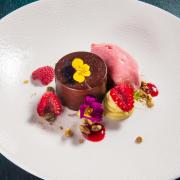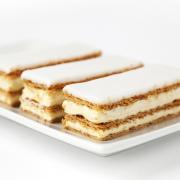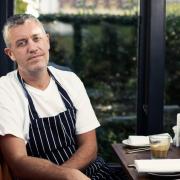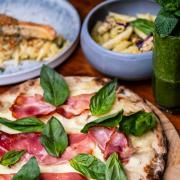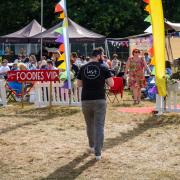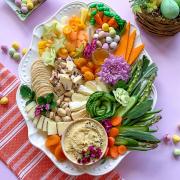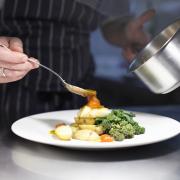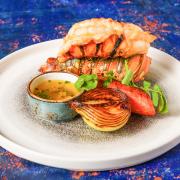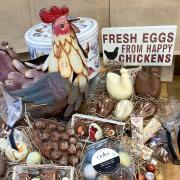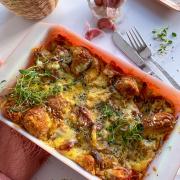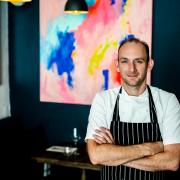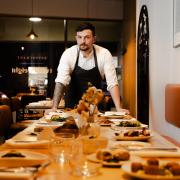A retired Frodsham couple have found a deep sense of job satisfaction since establishing their own micro-brewery. It seems happiness can be found in a pint glass!
When Barrie Davidson retired in 2004 he and his wife Hazel could have settled for a rather easier existence than setting up and running a brewery. They intended to but the fates conspired and plenty of local beer lovers are glad of it.
‘We wanted to open a deli or something similar but we were beaten to that where we live,’ says Barrie: ‘So I decided to fund myself to go to college to learn to brew,’ not an obvious path to follow - he liked real ale but he was by no means a fanatic – then.
He took a short course at Brewlab within the University of Sunderland, and rapidly acquired a brewing plant. The new challenge tested old skills – Barrie trained first as an engineer, and later became a local authority regeneration officer.
Not everything went smoothly, however: ‘We hoped to go into the disused railway station building in Frodsham, and so called ourselves Stationhouse Brewery, but through no fault of ours that fell through.’
After three years in Ellesmere Port they were eventually able to move the business to their home village, occupying a unit in the Lady Heyes Craft Centre, in time changing their trading name to Frodsham Brewery.
Barrie says: ‘We’re what’s known as a five-barrel brewery, a micro-brewery, which means we produce around 900 litres of beer per brew: small scale, hand-made, hand-bottled, hand capped, a true craft brewery – even if some of the labels are a bit wonky!’ That last comment is a joke with Maria Sproston, who handles their sales and along with Hazel designs and puts on the labels, which (uneven or not) are very eye-catching, those for Dark Ark Ale and Devil’s Garden especially things of modern beauty.
Maria said: ‘We make 18 different beers and sell them to places in a radius of about 30 or 35 miles around the brewery, so that includes Stalybridge, Manchester, North Wales, Chester, Crewe. We deal with 154 customers, obviously not all of them on a weekly basis; we only brew about 40 casks a week.’
‘We like to have 18 in the range, but add new ones and maybe drop some if there is something else in the list that’s a bit similar to it – we like them to be very different,’ explains Barrie with enthusiasm. ‘Our customer base is people who like distinctive tastes. And they are all made to original recipes that I develop myself, with nothing copied. None of the beers are rebadged versions of another; each is different, a separate brew with a separate recipe.’
Those recipes have brought several awards, notably in contests run by The Society of Independent Brewers, though Barrie keeps his feet on the ground about such matters: ‘You get to realise that even if you win a gold medal you are only king for a day.’
When the brewery began they delivered as far away as Leeds and Wakefield. Soaring diesel prices made that uneconomic so they shrank their territory but expanded their market: ‘We realised there were still a lot of outlets in the Northwest within a 30 mile radius that we weren’t selling to,’ continues Barrie. So now along with cask ale delivered to pubs they have customers like bistros and restaurants, specialist beer shops and even garden centres taking up their bottled range, and run a brewery shop on-site.
Several of the ales (no lagers - Barrie doesn’t even like to hear the word) have names with local connotations: Frodsham 800 commemorates the recent 800th anniversary of the village; Froda’s ale refers to its Saxon founder; and Dark Ark came from a competition to choose a name linked to Manley, where Dark Ark Lane is to be found.
We met at an event to launch their new ale Danny, (and very hoppily tasty too), which honours the last steam tug-tender left in the UK, the Daniel Adamson, whose preservation society will receive a donation for every bottle sold.
If they time it right visitors to the brewery get to talk to the brewer: ‘We pride ourselves on being small and personal and we make sure it’s interactive. We want to engage people,‘ said Barrie. With enough notice they’ll even create personalised labels.
The future looks bright, with the company now employing five people: ‘Since 2007 when we were a bit nervous we have grown and grown. Now bottled beers are about 40 per cent of our production. And that’s where we are – more or less up to capacity, shifting so much beer that we are selling the stuff before it’s produced, so I’m brewing to supply not always brewing to sell.’
Business is good enough that they are considering taking on an additional unit near their current one, the idea being to transfer the bottling there. But they won’t automate it, even if that might avoid the occasional wonky – but very artistic - label.



